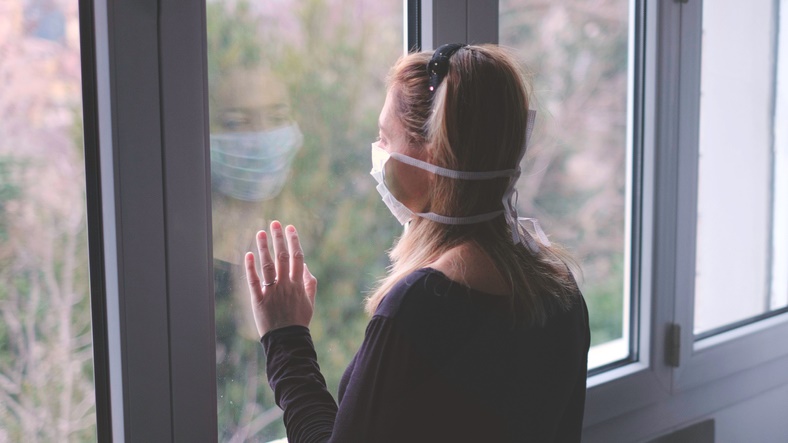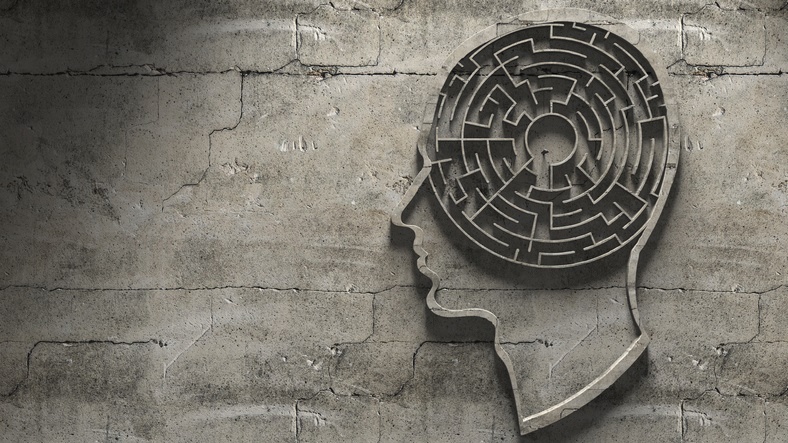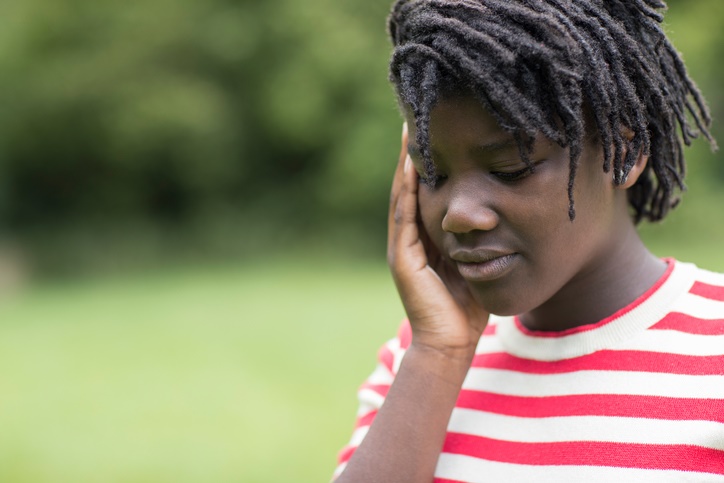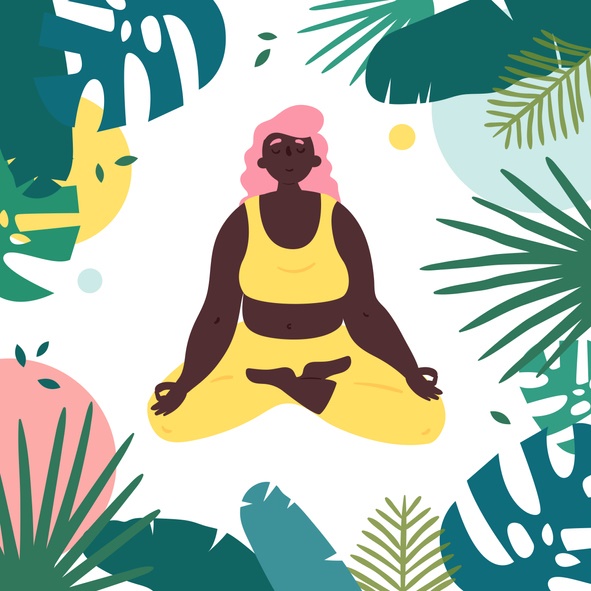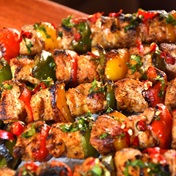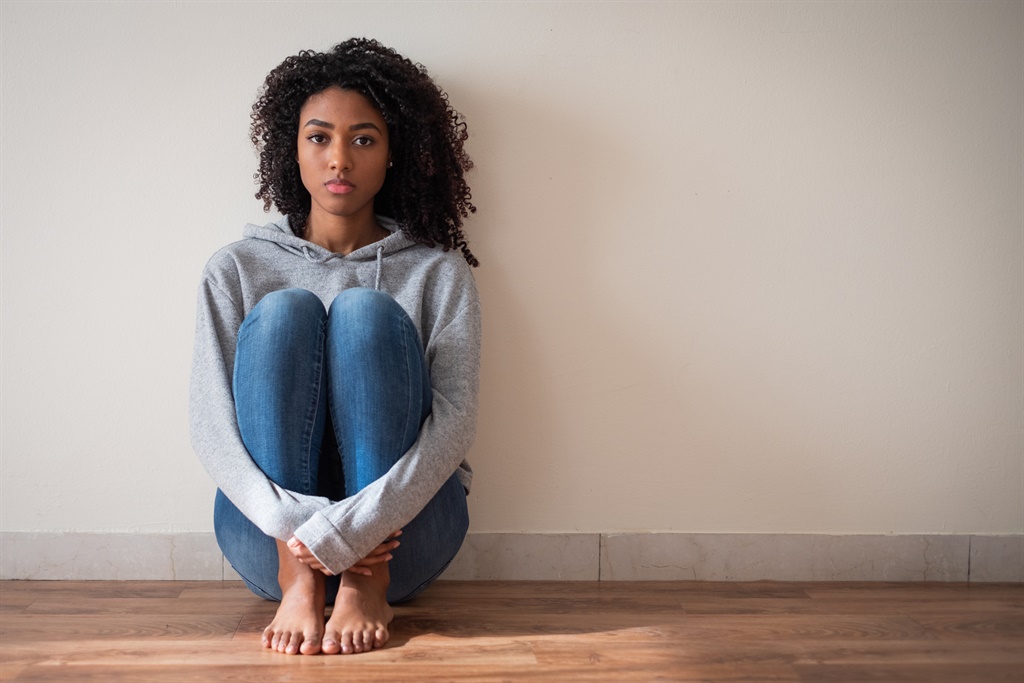
Disability rights advocate Gaby Sanchez has had to learn, as a physically disabled person, how to navigate an inaccessible world. Owing to her disability and the chronic conditions that result from it, she has more than 10 years’ worth of experience in intermittent strict self-isolation. Now that South Africans will be facing the same, she offers steps to protect you mental health.
For many, the Covid-19 coronavirus pandemic has placed further pressure and burden on their already vulnerable and oppressed existence.
Highly susceptible to the most serious and fatal effects of Covid-19 are individuals considered as high risk – such as those with disabilities, chronic underlying health issues and the elderly – who have been placed in an even more precarious position.
When talking about mental health and psychological issues, one must acknowledge the large role of external environments and societal contexts within which communities and the individuals within those communities find themselves.
It is for this reason that in looking for ways in which we can offer psychological support for all in South Africa, high-risk individuals included, during this distressing time, we have to briefly consider the context in which this pandemic is playing out.
In this country, the vast majority of disabled people (7.7% or 2.8 million individuals, as stated in outdated 2011 census results) are black and live in poor, vulnerable economic circumstances.
South Africa has a dark history of entrenched discrimination and able-ism, which persists today despite small constitutional victories.
With the social assistance disability grants being less than R2 000 a month, service delivery and accessibility to adequate housing, quality education and equal and appropriate medical and psychological support lacking, South Africa has fallen short in promoting and protecting the rights of all South Africans, as enshrined in the Constitution.
It is through this lens that we must view and respond to the immediate and long-term effects of Covid-19 on both our physical and mental wellbeing. For this reason, we have to be extremely vigilant and implement measures to not only safeguard our physical safety by following the World Health Organisation (WHO) hygiene protocols, but also take steps to protect our mental health.
Sadly, many South Africans do not have the luxury of access to some of the prescribed measures to ensure their safety. Their strife is exacerbated by the nationwide lockdown, which commenced on March 26.
As a thirty-something-year-old queer, disabled woman with privilege that extends from my race and socioeconomic status, I am cognisant of the fact that many of the daily practices and nuggets of advice I can offer to those new to self-isolation are, in fact, inaccessible to many South Africans trying to survive and thrive in this overwhelming distress.
I also need to add to my disclosure a reminder that no two disabled experiences are the same, even if people share the same medical diagnosis.
I do not have an all-inclusive how-to guide on ways to wade through these awful times unscathed.
I learn each day from others too, sharing practices, refining ways in which to cope better.
Let’s call it my long-time experience in survival mode. Most of us disabled folks learn to operate from this place daily, having to always be on high alert, analysing logistics based on accessibility and need.
Having to navigate the world with a physical disability, and MacGyver my way around challenges, I’ve learnt a few things along the way. It’s quite something to deal with and play a role in a society that deems bodies and lives like mine disposable. That’s, of course, unless we’re packaged neatly to be able to offer some form of productive value in return.
We are reminded to always be polite while being inspirational and never dissenting.
Unfortunately, society’s able-ism, its condescension and gaslighting of our experiences while denying necessary accessibility needs and human rights, has contributed a great deal to the present reality and context within which we face the Covid-19 pandemic.
In most countries, it is glaringly obvious that, had governments addressed key issues of universal access – things most disability activists have been fighting for for decades – we all would be in a much better position and would be more equipped to address the pandemic.
This reality makes it even more difficult to adjust for those vulnerable, high-risk individuals having to self-isolate to avoid fatal consequences.
So what can one do to minimise harm to our mental health during this period?
Over the years, I’ve learnt a few methods to cope in the face of medical trauma, as well as how intrinsically linked mental health is to physical health.
We need to look after both now more than ever.
ACCEPTANCE
It’s important to remember, with compassion and patience, that this is happening. It is neither helpful nor constructive to descend into a conspiracy theory spiral. You can only do what you can in these extraordinary circumstances. Make peace with the fact that you often will struggle. That’s okay.
SLEEP
Without adequate, quality sleep not only will your body struggle to function, but your ability to fight off disease and maintain a health immune system will also be affected.
You need to give your body the best fighting chance right now. Your mental health will thank you.
The SA Society for Sleep Medicine highlights the importance of sleep as it affects mood, concentration and anxiety levels.
Chronic insomnia often exacerbates chronic conditions involving breathing difficulties such as asthma, hormonal imbalances and pain, among other health challenges.
Getting that good night’s rest is a priority right now.
FOCUS ON THINGS YOU CAN CONTROL
Try to focus on the things you can control, such as practising social distancing, not gathering in large numbers and staying at home.
Can you keep yourself and your immediate living and food preparation area clean and sanitised according to WHO guidelines?
If so, do that. You’re giving yourself a way to feel on top of things. Getting involved in helping your immediate community during this time also gives you a way to feel useful.
DON’T FIGHT THE BODY
You need to know that there will be physical effects of self-isolation and illness.
Perhaps you’ll feel more muscular stiffness or pain, perhaps muscles will slowly get weaker. Your body will respond to the trauma in specific ways. Sometimes you may experience stomach issues such as constipation.
Make sure you avoid this by eating more fibre and not constantly lying on the coach if you can avoid it.
Movement, however small, aided or independently, in whatever shape or form, is important.
REACH OUT FOR HELP
Psychologists and psychiatrists are important team members to approach when needing extra support right now. But they’re not your only resources; the following are a few helpful contacts and resources to keep at hand:
. Therapy Route is a South African directory site that allows visitors to search for mental health professionals who consult online;
. The SA Depression and Anxiety Support Group is available on 011 234 4837;
. The Childline hotline is 0800 055 555;
. The suicide crisis hotline line is 0800 567 567 / 0800 212 223 / SMS 31393;
. The gender-based violence helpline is 0800 150 150; and
. The substance abuse helpline is 0800 121 314 / SMS 32312.
KEEP SOCIAL CONNECTIONS STRONG
You may be feeling incredibly antisocial and depressed, but don’t shy away from your loved ones. Likewise, don’t feel like you must be constantly in touch and social. Balance is key.
Use instant messaging and video call, plan virtual house parties, and check in with others and let them check in and support you too.
MEDITATION
Even though I was a slow learner when it came to meditation, it has become one of the best tools in my mental health survival toolkit.
As someone with complex respiratory health issues, I am unable to take any medication for anxiety as such medication often has respiratory-suppressing side effects.
Learning the breathing techniques that not only ease anxiety but have played a role in improving my respiratory function has been a game-changer.
There are many great apps which help with meditation, such as Head Space, as well as free meditation sessions on platforms such as YouTube and Spotify. Google is your biggest tool.
Get your Nancy Drew on because information is power.
GET CREATIVE
Art, music and any other form of creative expression, whether practising or experiencing it, is a powerful way to boost one’s mood. Make some playlists or start having morning dance sessions before your first cup of coffee. Actively choose to find ways of adding creativity to your life.
LIMIT TECH USE
This is not new information, but I know it can be extremely hard to distance yourself from social media and the general media right now.
It is important though that you realise just how the quantity and what kind of information you are consuming are affecting you and your mental health.
So take lots of breaks, try to schedule time connecting with friends and be strict with how you curate your feeds.
The same goes for friends and family – if they’re draining your energy during this time, communicate clear boundaries.
Don’t forget to curate your offline interactions too.
BE KIND AND COMPASSIONATE, AND FIND YOUR PEOPLE
It’s funny how the worst of times often brings out sides in others we never thought we’d see, even loved ones.
People’s responses to trauma are varied and all valid, but hurting others is never okay.
That said, it’s important now more than ever for us to identify sides of ourselves that are harmful to our growth and negatively impact on others.
We need to be honest and try to consider some of our immense privilege in a time when so many lack the basics to even begin to feel safe.
If most people, who have never had to worry about chronic health issues or access to resources, genuinely get comfortable with feeling uncomfortable, inconvenienced or scared, we’ll realise that our reactions are merely a type of grief in response to a harsh reality that we have little control over.
It is in these times that we must find a sense of community – whatever that may look like for each of us – in which to seek support and assistance, even outside of our usual networks. We will get through this, but only because we’re stronger together.
Sanchez is a disability rights advocate and content strategist who is passionate about universal access in the streets and in digital media. You can follow her on Twitter @Sanchlet




 Publications
Publications
 Partners
Partners




